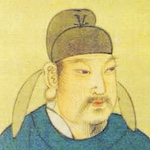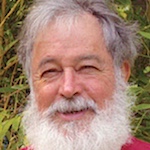

Tao Te Ching

Xuanzong 武隆基
(Hsuan-Tsung or Wu Longji)
685 – 756 CE
Tang emperor famous for many things including his poetry and calligraphy as well as establishing one of China’s golden ages. He was deeply interested and influenced by both the Taoist and Buddhist traditions and his long reign of 43 years was a period of peace, political stability, and economic prosperity with many advances in education, music, painting, sculpture, and literature. He wrote a commentary on the Tao Te Ching, Yu-chu tao-te-chen-ching and had others commissioned.
Lineages
Politicians Taoist
Eras
Chinese
Tang Dynasty 唐朝 (618 – 907 CE)Quotes by Xuanzong (6 quotes)
“And once we are free of desire, we must also forget the desire to be free of desire. Serene and at peace, the ruler does nothing, while the world takes care of itself.”
Chapters:
37. Nameless Simplicity
Comments: Click to comment
“The greatest victory involves no fighting.”
Chapters:
31. Victory Funeral
Comments: Click to comment
“The image of thirty spokes converging on a hub shows how less is the ancestor of more.”
Chapters:
11. Appreciating Emptiness
Comments: Click to comment
“The nature of water is to stay low, to not struggle, and to take on the shape of its container. Thus nothing is weaker. Yet despite such weakness it can bore through rocks. Rocks, however, cannot wear down water.”
Chapters:
78. Water
Comments: Click to comment
“Those who can see an event while it is still small and change their behavior accordingly we say have vision.”
Chapters:
52. Cultivating the Changeless
Comments: Click to comment
“unless students can forget the teacher, their vision will be obscured.”
Chapters:
38. Fruit Over Flowers
Comments: Click to comment
Quotes about Xuanzong (1 quotes)

“One of China's more famous emperors, [Xuanzong] was also a skilled poet and calligrapher, and was deeply interested in Taoism as well as Buddhism”
Comments: Click to comment
Comments (0)